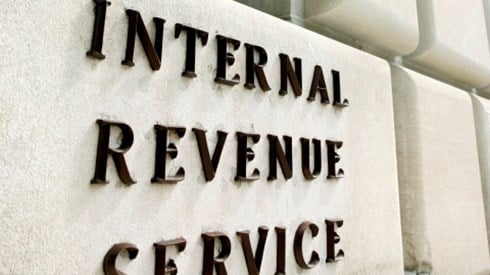Judgment in Micro-Captive Reporting Case Vacates IRS Notice 2016-66

March 24, 2022

A federal judge has granted a motion for summary judgment filed by CIC Services in its case against the Internal Revenue Service (IRS), vacating IRS Notice 2016-66.
Ruling in CIC Services LLC v. Internal Revenue Service, Department of Treasury, and The United States of America, Judge Travis R. McDonough of the United States District Court Eastern District of Tennessee ruled that, in enacting its Notice 2016-66 micro-captive reporting requirement, the IRS violated the federal Administrative Procedure Act (APA). "Notice 2016-66 is a legislative rule that is invalid because the IRS failed to observe notice-and-comment procedures required by the APA," the ruling said.
The judge also held that the federal agency's process of adopting the requirement—in which it deemed micro-captives "transactions of interest"—was arbitrary and capricious. "In this case, the administrative record fails to include relevant data and facts supporting the IRS's decision to designate micro-captive arrangements as transactions of interest, and, thus, reportable transactions," the judge found.
"While the IRS may ultimately be correct that micro-captive insurance arrangements have the potential for tax avoidance or evasion and should be classified as transactions of interest, the APA requires that the IRS examine relevant facts and data supporting that conclusion," the ruling said. "The administrative record in this case simply does not include underlying facts and data showing that micro-captive insurance arrangements have a potential for tax avoidance or evasion. As a result, the notice must also be set aside as agency action that is arbitrary and capricious."
The judge's ruling vacates Notice 2016-66 in its entirety. It also notes that the IRS obtained documents and information it was not entitled to because it failed to comply with the APA. "Under these circumstances, it is entirely reasonable and equitable to require the IRS to return to the taxpayers and material advisers information and documents it collected pursuant to the notice," the ruling said.
In September 2021, CIC Services won a preliminary injunction barring the IRS from enforcing its micro-captive reporting requirement on the company. CIC subsequently filed a motion for reconsideration, asking the court to bar the IRS from enforcing Notice 2016-66 entirely.
That September ruling comes after the US Supreme Court, earlier in 2021, overturned a federal district court ruling and remanded the case to the lower court for consideration of CIC's effort to stop the IRS from enforcing its micro-captive reporting requirement set out in Notice 2016-66.
The IRS had contended that CIC was barred from seeking its injunction by the Anti-Injunction Act, a measure preventing courts from issuing injunctions that restrain the assessment or collection of a tax. However, in CIC Servs., LLC v. Internal Revenue Serv., No. 19-930, 2021 U.S. LEXIS 2585 (May 17, 2021), the Supreme Court determined that the Anti-Injunction Act didn't apply in the case of CIC's suit.
Though the lower court had initially denied CIC's injunction motion in 2017 on the basis of the Anti-Injunction Act, following the Supreme Court's May 2021 ruling, CIC filed a renewed motion in July 2021, seeking to enjoin the IRS's enforcement of Notice 2016-66.
In seeking the injunction, CIC argued that the notice was a legislative rule under the APA and that, in issuing Notice 2016-66, the IRS had failed to comply with the APA's notice and comment rulemaking requirements. CIC also noted that complying with the IRS rule had cost it hundreds of hours of employee labor and thousands of dollars per year.
So-called micro-captives, small captive insurance companies that elect to be taxed under section 831(b) of the Internal Revenue Code, which allows small insurance companies to be taxed only on their investment income, have been the target of IRS scrutiny in recent years.
The IRS has noted that, in the past several years, it has intensified its efforts to combat abusive micro-captive insurance arrangements.
In 2020, the agency deployed 12 new micro-captive examination teams to substantially increase its examinations of micro-captive insurance transactions, while in April 2021, it warned participants in abusive micro-captive arrangements to exit those arrangements as soon as possible. Days later, the IRS announced that it had formed an office to coordinate the agency's focus on abusive tax avoidance transactions, including abusive micro-captive insurance arrangements.
In January, the IRS announced that it was looking to hire up to 200 additional tax attorneys to focus on abusive tax schemes, including abusive micro-captive arrangements.
March 24, 2022




